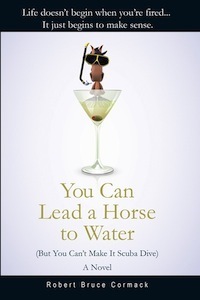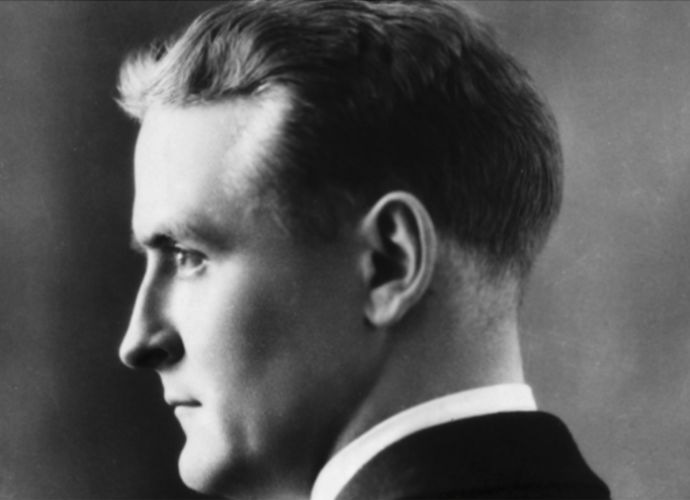You Can't Listen Without Learning Something.

Why successful people open their ears before they open their mouths—or their wallets.
“When you listen to people, listen completely.” Ernest Hemingway
We’re all guilty of being dumb listeners. We engage in a conversation, giving the impression we’re interested. I say “giving the impression” because it’s just an impression. Do we actually care what the other person is saying? Or are we already formulating our own response?
This is what separates smart listeners from dumb listeners. Smart listeners are really hoarders. They collect words, thoughts, impressions, believing that any conversation could have something of value. While we’re more interested in our own opinions, they’re gathering knowledge.
Smart listeners, for instance, can always remember a comment—especially one that impacted on their lives. They’ll say things like: “I had a boss once who told me to get out of brokerage. I left and never looked back.”
Not everyone comes with a sign saying they’re really smart. Some of the wisest people never knew they were wise.
How many of us heed the words of others? How many of us are willing to change based on someone else’s advice?
If you’re thinking: “Well, I always listen to people who are really smart,” that could be your biggest problem. Not everyone comes with a sign saying they’re really smart. Some of the wisest people looked pretty dumb.
Nobody thought Henry David Thoreau looked wise, so he had to write a book. Even then, he didn’t get much attention. Writing about ponds didn’t help, either.
Many years ago, just before the Great Depression, J.D. Rockefeller was walking through the business district in New York. Those were good years for Rockefeller. He’d made a lot of money through his investments, and had every reason to believe it would continue.
When he stopped to buy a newspaper, there was a shoeshine boy talking to a customer. The boy was telling him: “If you want to make a lot of money, invest in this stock.”
Rockefeller went straight to his office and sold all his stock holdings. As he explained later: “The day a shoeshine boy starts giving investment advice, that’s the day to get out.”
You could say Rockefeller was a good eavesdropper. That’s probably true of all smart listeners.
How many other passersby heard that shoeshine boy talking? How many realized what Rockefeller realized?
Smart listening is obviously a gift, a sixth sense. It’s the innate ability to hear what other people ignore. You could say Rockefeller was a good eavesdropper. That’s probably true of all smart listeners.
I remember a famous ad once that said: “Be careful discussing your ideas on the elevator. They may become someone else’s.” Should we blame those people for stealing ideas, or admire them for paying attention? Maybe plagiarists are smarter than we realize.
Warren Buffett told a story once about being on a train with a colleague. As they passed through a railway yard, Buffet was amazing at the number of rail cars being shunted and linked. “That goes on nonstop day and night,” his colleague said to him.
Was that Buffett’s inspiration for buying Burlington Northern Santa Fe Railroad? Buffett didn’t say. What we do know is he recalled his colleague’s words. Sometimes off-the-cuff comments can be turned into gold.
If you watch Bill Clinton in an interview, his eyes never leave the speaker. Every word is important to him. This intensity — this willingness to take everything in — is what his advisors called his “most endearing quality.”
One commentator, years ago, argued that Richard Nixon listened as well as Clinton. Problem was, Nixon’s eyes were everywhere. Voters hated that about Nixon. Clinton’s direct stare, on the other hand, appealed to voters immensely. He still has one of the highest popularity ratings in history.
Nixon has one of the worst.
Clinton and Buffett have something else in common. It isn’t an encyclopedic memory so much as a dedicated one. While Buffett’s folksy stories are endearing, they also show his respect for the thoughts and words of others.
Believable dialogue is always that way. It isn’t the construct of imagination, it’s the construct of remembering.
In the same way, when Clinton mentioned something a housewife or construction worker said to him on the campaign trail, it sounded sincere. It didn’t feel scripted. He believed, so we believed.
Ernest Hemingway was quite a talker himself, but he knew when to use his ears. Near the end of his life, he admitted that many dialogues in his books were very close to transcription. Believable dialogue is always that way. It isn’t the construct of imagination, it’s the construct of remembering.
When I started my first novel, I thought of all the things I wanted my characters to say. I wrote page after page until one morning I read what I’d written. Everyone sounded the same. Why? They were all me. I was listening to myself when I wrote instead of my characters.
The next morning I started again, this time truly listening to my characters. Before I knew it, whole dialogues took place. I followed them to work, to the store, listening to everything they said. As I did, they became more whole and real. They were letting me into their lives, becoming my friends.
As the Dali Lama once said: “When you speak you are repeating something you already know. When you listen, you learn something new.”
I listened through the whole book, realizing what Hemingway said was true. If you “listen completely” you learn so much. My characters said things I never would have thought of. How was that possible?
Here’s what I realized: Talking doesn’t just stop us from hearing other people. It stops us from expanding our own knowledge. As the Dali Lama once said: “When you speak you are repeating something you already know. When you listen, you learn something new.”
With everyone talking these days, it seems like we’d rather make a point than learn one. We talk over each other, repeating ourselves, believing who talks the most is obviously the smartest.
While we’re doing that, what are successful people doing? The Buffetts, the Clintons, the Dali Lama, they’re all listening. If we did the same, we wouldn’t just learn to be successful. We’d learn how much there is to know.
As Buffett once said: “We wouldn’t make half the mistakes we make if we learned to open our ears instead of our wallets. Me included.”
Robert Cormack is a freelance copywriter, novelist and blogger. His first novel “You Can Lead a Horse to Water (But You Can’t Make It Scuba Dive)”is available online and at most major bookstores. For more details, go to Yucca Publishing or Skyhorse Press.

""
Articles from Robert Cormack
View blog
A year later, he earned 20 times that. · “No decent career was ever founded on a public.” F. Scott F ...

Has the world gone crazy, or are we having daddy issues? · “The end move in politics is always to pi ...

In honour of Women's Day, let's see which is more offensive. · “Life is tough, darling, and we’d bet ...
Related professionals
You may be interested in these jobs
-
We're committed to teamwork, community, and your training and development. · We're excited to share that we have a company wide Hiring Day on March 3rd and 4th · ...
Calgary1 week ago
-
We're excited to share that we have a company wide Hiring Day on March 3rd and 4th and we can't wait to meet you. · Meet leadership team · ...
Kelowna1 week ago
-
This is a brand-new role and the company is scaling fast. They need someone who can take raw inbound leads, qualify them relentlessly, and hand clean SQLs to the field sales team. · ...
Woodstock, Ontario1 day ago


Comments
Robert Cormack
8 years ago#4
David B. Grinberg
8 years ago#3
Robert Cormack
8 years ago#2
And, thus, you're here, Kevin Baker. That's smart.
Robert Cormack
8 years ago#1